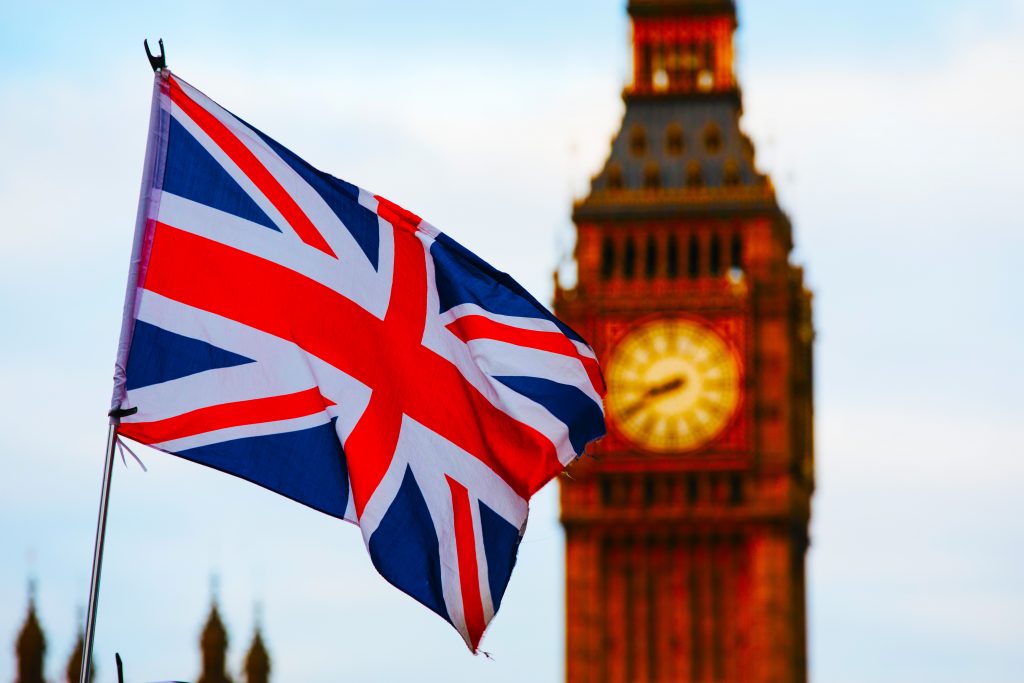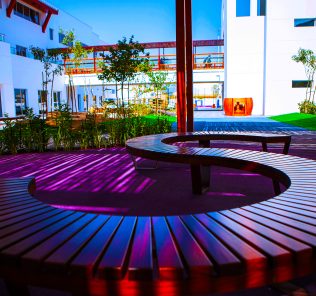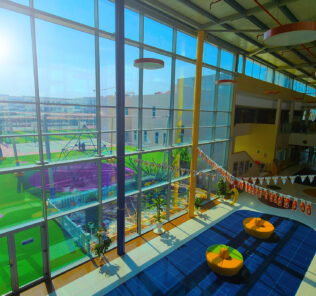Background: A’ Levels are Dead. Long Live the IB. School leaders Speak Out.
Much like deciding which school to choose, or which subjects to opt for, as students edge nearer to university, it is increasingly difficult for many of us, as parents, to differentiate between the IB (International Baccalaureate) curriculum, and traditional British A Levels.
- What are the differences?
- Which is best for children?
- Which qualification is favoured by universities?
- Which is better?
To navigate the minefield, we spoke to experts about how parents and students can make sense of the choice between the two curricula.
The schools that contributed to this article are:
On the side of British A’ Level Education and looking at the quality of the school above all:
On the side of the International Baccalaureate:
- Repton School Dubai, review here.
- Greenfield International School, review here.
- GEMS International School Al Khail, review here.
Part 1: The Arguments for British, English National Curriculum, Education.
We first asked Brendon Fulton, Executive Principal, Dubai British School Jumeirah Park, to explain the broad differences between the IB and A’ Levels. Mr Fulton told us:
“To put it simply, A-Levels require students to specialise in a relatively narrow range of three to four subjects only, whereas the IB Diploma requires students to engage in a far broader range of learning areas, including general learning skills.
While both offer a rigorous curriculum, students also need to study within a sphere which suits their personalities and way of learning.
Where the IB offers freedom and diversity, A Levels might suit personalities who thrive in structure, the process of GCSEs and A Levels offering a more formal approach.”
For the International Baccalaureate Diploma, students take six separate subjects covering two languages, mathematics, sciences, humanities and, if students wish, an arts subject. In addition, students take three core units, producing a 4500 word Extended Essay, studying the Theory of Knowledge and involving themselves in activities involving Creativity, Activity and Service [CAS].
A’ Levels require students to study only three (or, rarely, four subjects) – but in much greater depth.
The IB also offers a second, alternative, technical pathway to the Diploma called the Career-related Programme. Here students take two or more academic subjects and core units in Service Learning, Personal and Professional Skills, Language Development as well as completing a Reflective Project. This usually has a technical BTEC qualification at its core. It is less demanding on language skills that the Diploma.
In simple terms, children choose either:
Academic Pathway:
- The IB Academic Pathway culminates in the International Baccalaureate Diploma in IB Schools
- The British Academic Pathway culminates in 3 A’ Levels in English National Curriculum schools.
Technical Pathway:
- The IB Technical Pathway culminates in the International Baccalaureate Career-related Programme (IB CrP) in IB Schools (usually with the British BTEC as its core qualification.)
- The British Technical Pathway culminates in a Level 3 BTEC in English National Curriculum schools.
Generally, the best IB and British schools will always offer their students a choice between either following a technical pathway or an academic pathway so that every child is given maximum subject choice and the best chance of meeting their individual needs, potential, ability and ambitions. Rarer, some British schools allow students to blend both pathways – see below.
Not all schools, however, do. Some IB schools in the UAE only offer the International Baccalaureate Diploma. Some British schools in the UAE only offer A’ Levels. Why? In most cases it is because of cost – the more pathways and subjects a school offers, the more teachers it has to employ. There are also a very small number of schools in the UAE (we can think of only two that fit this model) that argue that they are so academic and selective in their intake that all children that attend their schools are only interested in an academic pathway.
There are some rare circumstances which add complexity:
In some American IB schools, children combine IB courses with Advanced Placement [AP} courses – or only study Advanced Placement courses. AP courses are similar to A’ Levels. This is often the case where the full Diploma does not fit well with the particular gifts of the child. The AP is, however, also a highly academic qualification. The AP qualification is also provided by the very best pure American schools because the standard graduating qualification from US schools at age 18, the US High School Diploma, is seen by universities as a equivalent to the lower MYP or GCSE level studies sat by British or IB schools by children at 16 years.
Credibility is of course key, not least, when applying to university. Bottom line, as a matter of fact, A’ Levels, the IB Diploma, the IB Career-related Programme, Level 3 BTEC and Advanced Placement qualifications are all seen by Tier 1 universities as providing sufficient evidence of attainment to satisfy entrance requirements, if the correct grade is achieved in each.
Mr Fulton says there are pros and cons of both A’ Levels and the Diploma, and argues that both qualifications do offer access to top universities around the world.
“A student with excellent A-Level outcomes is as likely to gain a place to a top university as is a student with excellent IB Diploma outcomes. However, a student’s goals may be the deciding factor.
He also argues, however, that those who say that A’ Levels are the gold standard qualification cannot support their argument:
There are [in my view ill-conceived] notions of value based on pathways.
For example, some say that students looking to study engineering or medicine at university are better served by the more specialised and in-depth offering through A-Level.
However, there is absolutely no university entrance data to support this hypothesis.”
Mr Fulton believes that, with no data to prove universities favouring one path or another, the choice of IB or A Levels often comes down to anecdotal evidence received by parents, and ultimately, a student’s focus and preference based on this.
Mr Fulton argues that the whole debate of whether IB qualifications (whether the IB Diploma/Career-related Programmes or A’ Levels/BTECs is walking parents down the garden path from what really matters:
“Rather than focusing on curriculum choice, much more important, is that parents look at the quality of the school.”
At GEMS Wellington Academy Al Khail, students can combine BTEC and A’ Level pathways because of the school’s commitment to meeting the needs, ambitions, abilities and gifts of the largest number of children.
Providing students with a choice of BTEC and A Level subjects which can be combined together provides students with real variety”, says Thomas Moriarty, Head of Sixth Form, GEMS Wellington Academy Al Khail.
Mr Moriarty argues that enabling students to blend a mix of subjects from BTEC and A’ Levels:
“[..] uniquely allows them to choose to combine academic and more vocational subjects. It enables us to much better meet the needs, abilities and ambitions of every single child.
A student may select to study a Diploma Award (Double) BTEC subject, like Sport, alongside an A Level in Psychology.
Alternatively, they could choose to complete a Subsidiary Award (Single) in any BTEC subject alongside two A Levels.
This pathway provides students with a balance of academic rigour and vocational experiences that will enable them to progress on to further training, university or employment.
Mr Moriarty says that combing the best from both BTEC technical and A’ Level academic pathways works:
“Most students who follow this pathway continue their studies at university, the school working with each pupil one on one to ensure their chosen pathway matches the undergraduate course of their choice through effective careers education and guidance.”
The British system allows, in schools that enable children to combine BTEC and A Level subjects, children who are both technical and academic to pursue both.
Part 2: The Arguments for International Baccalaureate International Education.
Peter Fremaux, Head of Secondary, Greenfield International School, agrees that:
“What’s key when choosing a curriculum, is which qualification [IB or A’ Levels] serves the needs of an individual student best.”
Mr Fremaux argues:
“Hard working students will thrive in both A levels and the IB.
Students with weaker approaches to learning will struggle in both.
The ability of the school [ie how good the school is, Ed.] to prepare students for exams and university will impact on outcomes regardless of the qualification followed.
If a student finds academic study a challenge, or lacks motivation in one curriculum, they will probably continue to do so in the other.”
Nor is there is a common grading structure to easily compare them:
- A’ levels are marked on an A*-E scale.
- IB subjects are scored on a 1-7 scale, with students also gaining a maximum of three points for the ‘core units’ giving a maximum score of 45.
The one fact that is indisputable is that In the UAE, and globally, A’ Levels continue to be the more common curriculum studied in international schools. This, however, actually tells us little about the quality and strengths of either.
For Mr Fremaux, as important as the question of A Levels versus IB, is the question for parents of GCSEs versus the IB equivalent, the Middle Years Programme (MYP):
“While students can gain traditional exam-based qualifications for the MYP, schools do not have to offer these, with many choosing only to internally assess students’ performance. Children at IB schools who leave after the MYP can have no qualification to take with them.
GCSEs, however, are an examination based qualification, assessed externally by an exam board.”
This is why, in many “British” IB schools, the qualification studied by children up to the age of 16 is in fact British GCSEs rather than the MYP.
Mr Fremaux argues that parents need to consider which qualification they feel is more appropriate for their child:
“For some students, the experience gained through taking external qualifications like GCSEs is appropriate in the lead up to the much more important A levels or IBDP.
Other parents, however, believe that the pressure of examinations inflicted on children at age 16 is unnecessary and counter productive, believing, rather, that children should be allowed to postpone formal examinations until they reach age 18 and completion of either A’ levels or IB programmes. IB schools allow this. British schools do not.
It is a fact that many educators and parents do feel that the need for external exams at the age of 16 is less important.”
Peter Fremaux, Head of Secondary, Greenfield International School
It is a view we have some sympathy with. Our view on the future of the GCSE qualification can be found here.
David Cook, Headmaster, Repton School Dubai, argues that for students looking to apply to universities abroad:
“The IB is the obvious pathway, given the more international nature of the curriculum.”
Mr Cook also believes that A’ Levels have to some degree had their day:
“Outside of schools in England and Wales, generally it is only British international schools which still offer A’ Levels and, even in the UK, many top schools have moved away from A-levels altogether.
Today, the IB’s global reach is more significant and better recognised.”
Mr Cook also believes that the A’ Level have lost significant credibility and are inherently unreliable:
“Additionally, the IB’s independence from governmental interference protects students studying IB from both the short-term changes imposed by the UK government, and grade inflation, which impacts A-levels as they are largely an English qualification.”
Simon Herbert, Head of GEMS International School Al Khail, agrees, suggesting the controversy around ‘inflation’ in A Level grades makes the IB qualifications the better option:
“From research undertaken back in 2010, I discovered that A’ Level pass rates and grades in the UK had increased for 27 years in a row.
Had students simply become cleverer?
Were the exam courses being ‘watered down?
Or were the introduction of modules responsible for this grade inflation?”
Mr Herbert says that the result of grade inflation in A’ Levels has meant that it has become “increasingly hard to distinguish the true ability of students.”
“At one point it was so bad that the British government had to create an A* grade, as so many students were achieving As.
The Durham Centre of Evaluation and Monitoring even found that the average A Level grade achieved by similar ability students had risen by two grades from 1988 to 2007.”
Mr Herbert continues:
“The IB Diploma does not suffer from any such grade inflation.
It is marked on a scale which has 45 points as its maximum, and everyone knows that the world average, of around 30 points each year, has not increased year on year.
Anyone who achieves the elusive 45 points is one of very few in the world each year, usually around 150 people, or fewer than 0.1% of candidates.
This leads to confidence and a positive view of the IB over A’ Levels on the part of university admissions tutors throughout the world.”
Mr Cook emphasises that parents and students must opt, ultimately, for what is more suited to each child’s personality, but strongly warns that parents should “take into consideration the follies of youth”:
“A Levels may well suit pupils with a particular aptitude, or interest in a narrower field of study, but A’ Levels narrow their options – they force children to commit to a future career during the tender teenage years, and that can be hazardous.
Teenagers often change their minds.
A university or career aspiration chosen when they are just 15 or 16 years old may well change significantly by the time they reach the stage of actually applying for courses.
Unlike A’ Levels, children studying for the IB are not boxed in. The versatility of the IB really allows students to keep their future options open.”
Bottom Line? The SchoolsCompared.com Verdict on British versus IB Qualifications.
In this article it is clear that many school leaders believe passionately in the relative strength of the IB. Some school leaders go so far as to identify risks for children associated with studying both British GCSE qualifications and A’ Levels. At the least, we can take from these powerfully held views, particularly here on the side of proponents of the IB, that there is a lot of heat in the debate.
As a result, we are going to revisit this question in a future article by giving a right to reply to those evangelists for the British system over the IB.
The fundamental critique levelled at the British system then, is as follows:
(1) Grade inflation has rendered A’ Level exam results unreliable and meaningless as a benchmark. The value of grades changes yearly.
(2) The British system is controlled and manipulated by the British government, or can be. It is not independent and results are not rooted in a fixed standard to make annual comparisons of achievement meaningful.
(3) A’ Levels force children to specialise to early. Students that are good at the Sciences and the Arts, for example, are forced to choose one or the other. This means locking out careers and choices at university.
(4) Universities are mistrustful of A’ Levels – they trust the IB more.
(5) GCSE exams are unnecessary. They force exams on children at too young an age and distract them from the important examinations at age 18.
What is not stated here directly, but was also argued was that the IB is a much more intellectually interesting qualification for students to study – and much better suited to the requirements of business and industry in the 21st century. Creativity and service are intrinsic to studying for the IB qualifications, but completely ignored by A’ Level. It is also argued that, whilst top British schools do allow the blending of BTEC and A’ Level, most British schools do not, instead forcing childen to choose between technical and academic pathways. The IB Career-related Programme, in the IB system, comes with this blending of academic and technical built in.
Are A’ Levels dead and just gasping their last breaths? Is the IB the new gold standard qualification for students? Given the framing of the debate in this article we are going to step back from giving a final view. Instead we shall revisit this article after fairly considering rebuttals from British Schools and their response to this damning, hard hitting critique of British GCSE and A’ Levels.
Watch this space.
© SchoolsCompared.com 2020. All rights reserved.
Notes from the Editor
(1) A very informative and well written history of British Education focused on A’ Levels can be found here.
(2) In an earlier version of this article we mistakenly suggested that GEMS Wellington Al Khail had recently introduced IB courses. This is not the case.
















































































Leave a Response